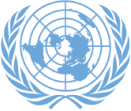Just about a month ago, the people of Guyana went to the polls to vote for the Government of their choice. Witnessed by an unprecedented number of observers drawn from several countries and international organizations, including the United Nations, the elections were deemed to be free, fair and transparent. With a renewed mandate, the Government led by President Bharrat Jagdeo , has recommitted itself to the pursuit of democratic governance at home and to a progressive foreign policy abroad.
I am pleased, on behalf of the Government and the people of Guyana to convey to the President of the Assembly our warmest congratulations on her election and to wish her much success during her term of office. To her predecessor, Mr. JanEliasson of Sweden , I would like to express our appreciation and thanks for directing the work of the Assembly this past year with considerable expertise and aplomb. And to our Secretary-General, Mr. Kofi Annan , who demits his post later this year, I wish to offer our sincere gratitude for his impressive leadership of the United Nations during an uncertain and challenging period. He leaves with our best wishes for his future health and happiness.
As a fledgling democracy, Guyana is proud to be part of the family of free nations. We are dedicated to the creation of a society based on equity and social justice that guarantees to all our citizens their fundamental freedoms and rights. To this end, we have enshrined in our Constitution provisions for the full enjoyment of these entitlements. In the same spirit, we have acceded to the many international treaties and conventions that embody agreements on the rights of peoples. Article 154 A of our Constitution guarantees that “such rights embodied in these international instruments shall be respected and upheld by the executive, legislature, judiciary and all organizations and agencies of Government”. We are thus fully committed to international cooperation for global peace and development.
The President of the Assembly is to be commended for proposing for discussion by this Assembly the topic “Implementing the global partnership for development”. Ever since its establishment in 1945, the United Nations has laboured to produce an effective development strategy. Decade after decade, several proposals were laboriously drafted, only to be quickly relegated to the archives. It was not surprising, therefore, that countries, especially the developing nations, eventually became disillusioned owing to the little that was achieved.
The World Hearings on Development that were held during Guyana ’s presidency of the General Assembly at its forty-eighth session sought a new approach to the issue of development by bringing together all the relevant actors — distinguished world leaders, member Governments, the private sector, non‑governmental organizations and other elements of civil society — to analyse deficiencies in international cooperation. What was needed, it was said, was a new development architecture, not a tinkering with the old.
Following up on the promise of these hearings, the General Assembly proceeded in 1997 to elaborate an agenda for development. There could be no more comprehensive and compelling document than that. Yet, it too was soon buried and forgotten. By the year 2000, the international community had decided that enough was enough and that instead of forging yet another declaration it would set for itself certain precise and time-bound goals.
Our pursuit of these Millennium Development Goals thus far has shown that while our efforts may indeed lift some countries out of poverty, significant and sustainable development will be achieved only through the international cooperation required in Goal 8. It is worthy of note that, while there are clear measurements of progress under Goals 1 to 7, no well-defined indicators exist for Goal 8 — the global partnership for development — an omission that clearly limits the effort at cooperation and creates an imbalance in the partnership.
If I have delved into the history of the development challenge, it is not to dwell on the past, but rather to draw from it lessons that may help us in the future to translate our long-held aspirations into early reality. Allow me, therefore, to offer some thoughts on how the global partnership for development may be strengthened.
As was determined at Monterrey , partnership, coherence and accountability are vital to the fulfilment of our development goals. Without close and genuine cooperation between donors and recipients, there is not likely to be significant progress. At the national level countries should own their development strategies, while at the international level there should be greater coordination and consistency of support in the trade, monetary and financial systems. Much too often it is the developing countries that are scrutinized and scolded for their shortcomings, while their developed partners are considered above blame. True partnership requires mutual accountability. Accordingly, we would propose that there should be some verification of donor pledges and periodic reviews of performance on both sides.
Implementation of the global partnership would be greatly facilitated if the task were to be seen in terms of mutual benefit and not of charity or obligation. Both sides must be involved in the decision-making process in all cooperation agreements. Such participation would produce a greater sense of ownership by the developing countries and, consequently, a deeper sense of commitment to execution. At the recent World Bank/IMF meeting held in Singapore and chaired by the President of Guyana, the IMF Managing Director is reported to have proposed a rearrangement of quotas that would enable developing countries to be more involved in decision-making. Although the change cannot be considered as comprehensive as necessary, it is, nonetheless, a first step toward more democratic governance in the management of development.
Furthermore, given the inadequacy of resources that have been available thus far for development, we must endeavour to identify, as we pledged in Monterrey , new and additional sources of financing. The Millennium Challenge Account and the International Finance Facility have been welcome attempts to provide fresh funding. More recently, at the initiative of France, Brazil and others a tax on air travel has been proposed — and implemented by some countries — and promises to provide substantial revenues to support development. Similar proposals, such as the Tobintax, a tax on pollution and a low‑elasticity commodities tax, are on the table. What is needed now is a serious evaluation of these suggestions to determine their feasibility for implementation by the international community.
Implementation of the global partnership undoubtedly suffers from the “beggar-thy-neighbour” attitude that exists in international economic and trade relations. As evidenced in the recent Doha Development Round negotiations, the predominant interests of the developed countries in such areas as agriculture, subsidies and services have effectively denied developing nations, more particularly the small and vulnerable, any prospect of significant participation in the global economy. Without expanded trade opportunities, investment and a comprehensive framework of support, development for many countries will continue to be elusive. We need, therefore, to ensure that the Doha Development Round is revived and that broad assistance is provided to serve the purposes of development.
An increasingly formidable challenge to implementing the development agenda is the spread of transboundary crime, including arms and drug trafficking, which has reached new and alarming levels that cripple economic growth. Governments can ill afford the resources needed to fight the drug lords, who are themselves endowed with considerable assets and artillery. Unfortunately, whatever assistance is provided by donor countries and relevant agencies is woefully inadequate to deal with the onslaught. This growing insurgency can be counteracted only by greater determination on the part of the United Nations system to collaborate fully to crush transboundary crime. Our developed partners therefore need to do more to assist in the fight against this scourge.
A more serious inhibitor to economic growth and social progress is the current unsettled international political climate, in which recourse to conflict is seen as a ready means of settling international issues. The egregious examples of Iraq andLebanon , where force has been used to achieve political aims and objectives, have clearly shown that violence solves nothing. Indeed, the havoc and destruction wrought by war seriously diminish the prospects for development, whether in theMiddle East or elsewhere. The agenda for peace cannot be implemented without due regard to the agenda for development.
The Government of Guyana has long been persuaded of the need for a new global human economic and social order that is capable of delivering true democracy and social justice to all peoples. First posited in 1994 at the World Summit on Social Development by the late President Jagan of Guyana , the concept is premised on a comprehensive and holistic approach to development aimed at achieving more inclusive economic and social progress. The new global human order initiative, which is already being considered by this Organization and has been supported by many Member States, seeks to create a consensus on a new model of development that would be based on genuine partnership among States and a joint endeavour to secure peace and prosperity for all.
No less formidable and challenging to the development agenda than the international political and economic environment is the fragile ecosystem in which we now live. We have all witnessed the increasing number of earthquakes, floods, tropical storms and hurricanes, which cause catastrophic damage wherever they occur. Less than two years ago, my own country was struck by a flood, resulting in damage equivalent to 60 per cent of our gross domestic product. It would be foolish— perhaps fatal — if we did not prepare ourselves to anticipate and withstand such disasters. Early-warning systems should be established across the globe and financial resources made available to the United Nations fund to facilitate early responses and recovery. In short, disaster mitigation should now become an integral part of the development agenda.
Experience has taught us that development is a complex and complicated phenomenon, and that the many challenges we now face are such that they cannot be overcome without full international cooperation. Yet our responses continue to be ad hoc and woefully inadequate to deal with the resolution of the problems that we are confronting. The development agenda has now become more extensive and is very urgent. With courage and vision, we must renew our commitment to the implementation of the global partnership for development. Our common humanity and, indeed, a common sense of decency and morality, demand no less.
Statement of H. E. Mr. S. R. Insanally, Minister of Foreign Affairs of the Republic of Guyana, in the General Debate of the 61st session of the General Assembly
Tuesday, 26 September 2006


